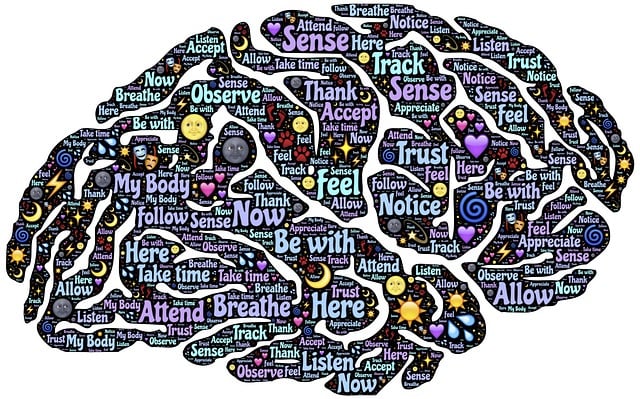Longmont Child Abuse Therapy focuses on holistic mood regulation by addressing emotional balance, self-esteem, and stress reduction. They help individuals of all ages manage emotional fluctuations through trauma healing, mindfulness practices, creative therapies, and social skills training. By integrating these techniques into daily routines, they foster resilience, enhance mental health awareness, and empower clients to navigate life's challenges with equanimity, ultimately promoting long-term well-being.
Mood regulation is a vital skill, especially in navigating today’s challenges. This article explores strategies for achieving emotional balance, catering to diverse audiences. We begin by delving into the fundamentals of mood regulation and its significance in maintaining mental well-being. Further sections focus on tailored techniques for children and adults, including evidence-based practices. For instance, Longmont Child Abuse Therapy offers specialized approaches to address trauma and promote healthy mood management in young minds.
- Understanding Mood Regulation: Unraveling Emotional Balance
- Strategies for Children: Nurturing Emotional Intelligence in Young Minds
- Effective Techniques for Adults: Managing Stress and Enhancing Well-being
- Longmont Child Abuse Therapy: Addressing Trauma and Promoting Healthy Mood Regulation
Understanding Mood Regulation: Unraveling Emotional Balance

Understanding Mood Regulation involves a deep dive into emotional balance – a delicate equilibrium that affects every aspect of our lives. It’s about recognizing and managing fluctuations in mood, from moments of elation to periods of sadness or anxiety. This intricate process isn’t just about masking emotions but understanding their root causes. Longmont Child Abuse Therapy, for instance, delves into this by addressing past traumas that can disrupt emotional regulation, offering tools for self-healing and long-term mental health stability.
In the quest for balanced moods, Self-Esteem Improvement plays a pivotal role. Boosting self-worth equips individuals with resilience against negative emotions and promotes healthier coping mechanisms. Similarly, Stress Reduction Methods are essential components of mood regulation strategies. By integrating practices like mindfulness and relaxation techniques into daily routines, people can navigate life’s challenges with greater equanimity, enhancing their overall Mental Health Awareness and emotional intelligence.
Strategies for Children: Nurturing Emotional Intelligence in Young Minds

Children’s emotional intelligence is a crucial aspect of their overall well-being and can be nurtured through various strategies. Longmont Child Abuse Therapy emphasizes the importance of early intervention to foster healthy coping mechanisms and build inner strength in young minds. One effective approach is incorporating mood management techniques into daily routines. Simple practices like mindful breathing exercises, where children learn to recognize and accept their emotions, can empower them to regulate their moods effectively.
Additionally, engaging in creative activities such as art or music therapy allows kids to express themselves and develop emotional vocabulary. The Community Outreach Program Implementation by Longmont Child Abuse Therapy offers group sessions that encourage peer support and shared experiences, fostering a sense of belonging and enhancing social-emotional skills. By combining these strategies, children can learn to navigate their emotions, build resilience, and cultivate lasting inner strength.
Effective Techniques for Adults: Managing Stress and Enhancing Well-being

Managing stress is a crucial aspect of well-being, especially for adults who often juggle demanding careers and personal lives. Longmont Child Abuse Therapy offers several effective techniques tailored to help adults regulate their moods and enhance their overall mental health. One powerful strategy involves incorporating empathy building strategies into daily routines. By practicing active listening and cultivating understanding towards oneself and others, individuals can reduce stress and foster healthier relationships.
Additionally, social skills training plays a significant role in mood regulation. Learning effective communication techniques and building a strong support network can significantly impact an adult’s ability to cope with challenges. Encouraging clients to engage in activities that promote inner strength development, such as mindfulness practices or physical exercise, has also proven beneficial. These techniques not only reduce stress but empower individuals to navigate life’s complexities with resilience.
Longmont Child Abuse Therapy: Addressing Trauma and Promoting Healthy Mood Regulation

Longmont Child Abuse Therapy centers play a pivotal role in addressing trauma and promoting healthy mood regulation among children and adolescents who have experienced abuse or neglect. These therapies are designed to create safe spaces where individuals can process their emotions, understand their experiences, and develop coping mechanisms that foster resilience. By integrating evidence-based practices, therapists help clients work through the complex effects of trauma, reducing symptoms associated with anxiety relief and improving overall mental wellness.
Through tailored interventions, Longmont Child Abuse Therapy aims to break down the cycle of trauma by challenging negative thought patterns and beliefs often perpetuated by abusive experiences. In addition to direct therapy sessions, these programs may incorporate Mental Wellness Coaching to empower individuals with self-care strategies that can be applied in daily life. Such comprehensive approaches not only target the present challenges but also equip clients with tools to navigate future stressors effectively, thereby contributing to the overall reduction of mental illness stigma and promotion of healthy mental wellness.
Mood regulation is a vital skill, applicable from childhood through adulthood. By understanding emotional balance and implementing effective strategies, individuals can navigate life’s challenges with greater resilience. The article has explored various techniques, from nurturing emotional intelligence in children to managing stress for adults, highlighting the importance of early intervention and ongoing self-care. For those who have experienced trauma, Longmont Child Abuse Therapy offers specialized support, addressing underlying issues and promoting healthy mood regulation. By combining knowledge with practical tools, individuals can take control of their emotional well-being and foster a more balanced and fulfilling life.














